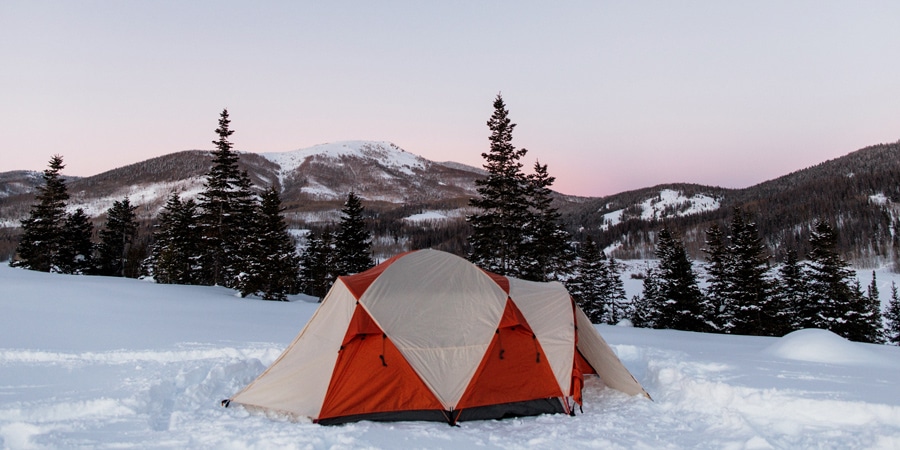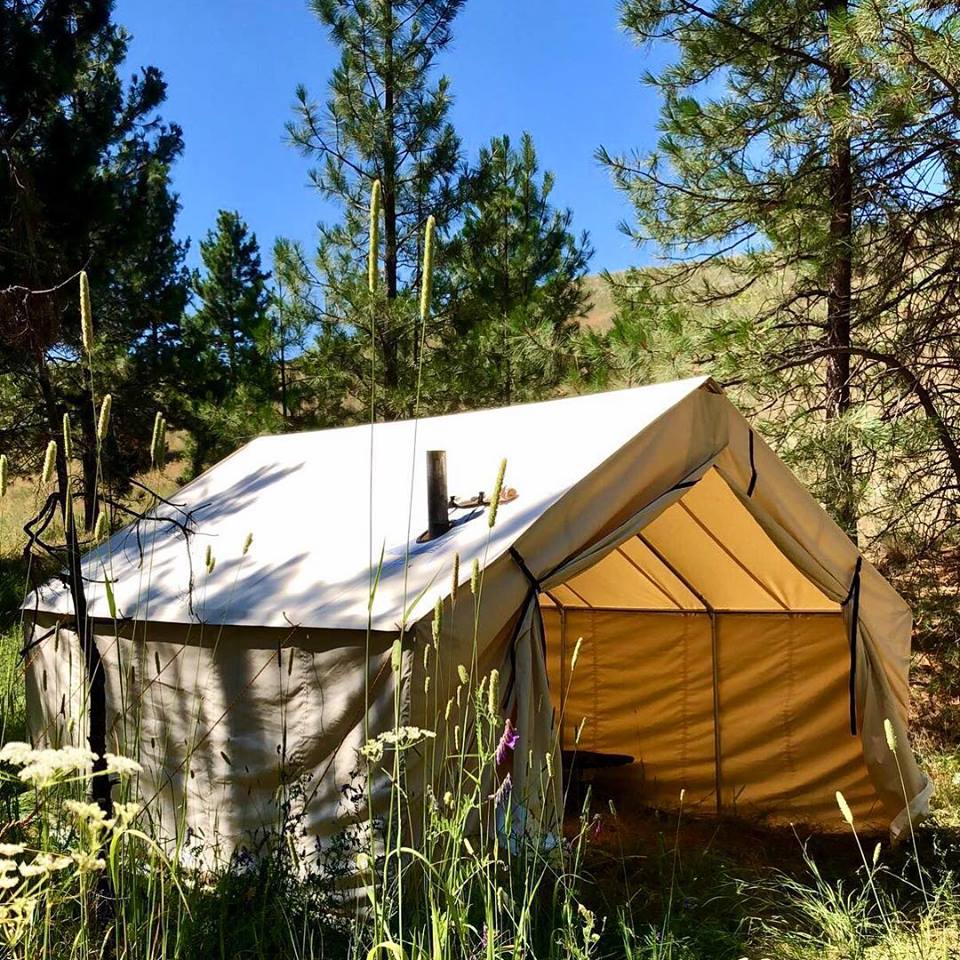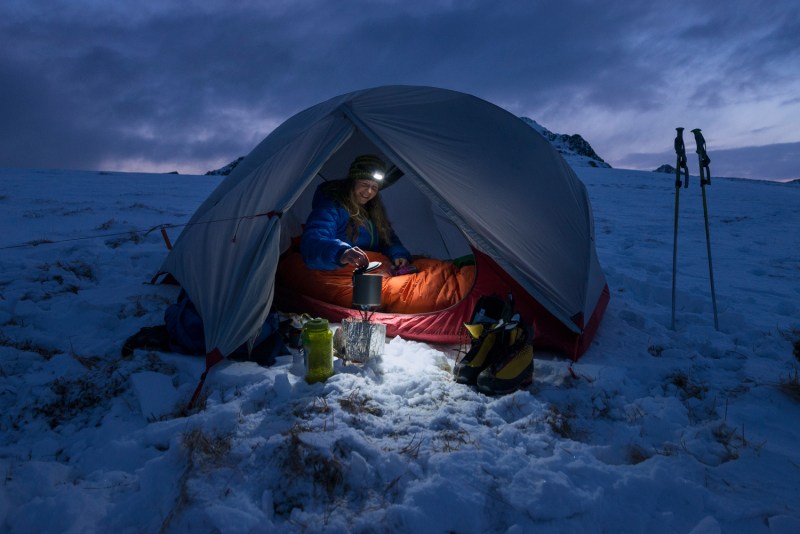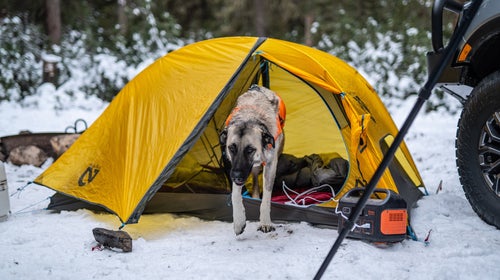

When it comes to winter camping, choosing the right cold-weather tent is crucial for a safe and enjoyable outdoor experience. The right tent can provide protection from harsh weather conditions, ensure insulation and warmth, and offer the necessary comfort during your winter adventures. In this article, we will explore the importance of choosing the right cold-weather tent and discuss the factors to consider and features to look for when making your selection.
Durability: One of the most important factors to consider when choosing a cold-weather tent is its durability. Winter camping can expose your tent to extreme conditions such as heavy snow, strong winds, and freezing temperatures. Look for tents made from high-quality materials that can withstand these elements and provide long-lasting performance.
Size and Space: Consider the size and space of the tent based on the number of people who will be using it. A tent with ample space allows for comfortable sleeping arrangements and storage of gear. Additionally, consider the tent's peak height, as you may need extra headroom for moving around comfortably while wearing layers of winter clothing.
Weight: Since winter camping typically requires carrying more gear, it's important to choose a tent that balances durability with weight. Look for lightweight materials that offer excellent strength and insulation. This way, you can avoid unnecessary added weight to your backpack.
Ventilation: Proper ventilation is important in a cold-weather tent to prevent condensation and maintain a comfortable living environment. Look for tents with adjustable vents, mesh panels, or windows that can be opened or closed as needed. Good ventilation also helps in managing moisture buildup and reducing the risk of mold or mildew growth.
Four-Season Design: Choose a tent specifically designed for four-season use. These tents are engineered to withstand extreme weather conditions and are equipped with features like reinforced poles, sturdy fabrics, and additional guy lines for added stability.
Waterproofing: Winter camping often means dealing with snow and ice, so it's crucial to choose a tent with excellent waterproofing capabilities. Look for tents with fully sealed seams, a durable rainfly, and a bathtub-style floor that offers superior water resistance.
Quick and Easy Setup: In cold weather, setting up a tent can be challenging. Look for tents that offer a quick and easy setup process, minimizing the time spent exposed to the elements. Features like color-coded poles and intuitive setup instructions are helpful.
Snow Skirts and Guy Lines: Snow skirts and guy lines are valuable features in a cold-weather tent. Snow skirts provide extra protection from blowing snow, while guy lines help anchor the tent securely in place during high winds.
By considering these factors and looking for these features in a cold-weather tent, you can ensure a comfortable and safe winter camping experience. Remember to also check reviews and ratings from other campers to get an idea of the tent's performance in real-life winter conditions.
So, whether you are an experienced winter camper or trying it for the first time, choosing the right cold-weather tent is essential for a successful winter camping adventure. Make sure to do your research, invest in quality, and stay warm and protected while enjoying the beauty of the winter wilderness.

When it comes to winter camping, choosing the right cold-weather tent is crucial to staying comfortable and protected in the harsh winter conditions. There are two main options to consider: single-wall tents and double-wall tents. Each option has its advantages and considerations that you should keep in mind.
Single-wall tents are lightweight, compact, and ideal for winter camping in dry and cold environments. These tents feature a single layer of fabric that acts as both the outer shell and inner tent. They are designed to provide excellent insulation and wind resistance.
One of the key benefits of single-wall tents is their simplicity and ease of set-up. They are typically lighter and more streamlined than double-wall tents, making them a preferred choice for backpackers and those looking to minimize weight and bulk.
However, single-wall tents may not be suitable for all winter camping situations. They can be prone to condensation buildup, especially in humid or wet conditions. To mitigate this, make sure to choose a tent with effective ventilation options and consider using a sleeping bag liner or a moisture-wicking sleeping bag to prevent moisture buildup inside the tent.
Double-wall tents are the more traditional option for winter camping. They consist of an inner tent and an outer fly, providing an extra layer of insulation and moisture protection. The inner tent provides a breathable and comfortable living space, while the outer fly acts as a barrier against wind, snow, and rain.
One of the advantages of double-wall tents is their ability to minimize condensation buildup. The separation between the inner and outer layers allows for better airflow and reduces the risk of moisture accumulation inside the tent. This is particularly important in winter camping, where condensation can freeze and lead to discomfort or even danger.
Double-wall tents also offer more versatility in terms of ventilation options. You can adjust the level of airflow based on the weather conditions, ensuring optimal comfort inside the tent.
However, double-wall tents tend to be heavier and bulkier compared to single-wall tents. They require more space for storage and transportation, which can be a limitation for backpackers or those with limited storage capacity. Additionally, double-wall tents often come with a higher price tag than their single-wall counterparts.
In conclusion, when choosing a cold-weather tent for winter camping, consider the specific conditions you will be facing and your personal preferences. Single-wall tents are lightweight and compact but may be more prone to condensation, while double-wall tents offer better insulation and ventilation but come with added weight and bulk. Whichever option you choose, make sure to select a high-quality tent that is durable, well-constructed, and suitable for the winter climate you will be camping in.

When it comes to winter camping, choosing the right tent size and capacity is crucial for a comfortable and safe experience. The size of your tent will depend on factors such as the number of people camping and the gear you need to store inside. It's important to have enough space to keep everyone warm and comfortable, while also allowing for movement and storage.
For solo winter camping: A single-person tent is typically the best choice. These tents are lightweight, easy to set up, and provide enough space for one person, along with their gear and a sleeping bag. Look for a tent with a vestibule for additional storage.
For group winter camping: If you are camping with a group, it's essential to choose a tent with enough capacity to accommodate everyone comfortably. Consider a tent with multiple rooms or partitions to provide privacy and separate sleeping areas. Keep in mind that a larger tent will also require more time and effort to set up.
When determining the right size and capacity for your cold-weather tent, it's important to consider not only the number of people but also the gear and equipment that you will be bringing along. Make sure to account for space to store backpacks, boots, cooking supplies, and other essentials. Additionally, consider any special needs or requirements, such as extra space for a pet or equipment like skis or snowshoes.
Solo cold-weather camping considerations: When camping alone, it's important to choose a tent that is easy to set up and lightweight for convenient transportation. Look for a tent with good insulation and ventilation to keep you warm and prevent condensation. Additionally, consider a tent with a strong and stable structure to withstand winter weather conditions.
Group cold-weather camping considerations: Camping with a group requires a larger tent with enough capacity to accommodate everyone comfortably. Choose a tent with multiple entrances and vestibules to allow for easy access and storage space. Look for a tent with good insulation and proper ventilation to keep the interior warm and prevent condensation. It's also important to consider a tent with a durable and sturdy construction that can withstand harsh winter conditions.
Overall, when choosing a cold-weather tent, it's crucial to consider the size and capacity that will best suit your needs. Whether camping alone or with a group, ensure that you have enough space for everyone and their gear while also prioritizing insulation, ventilation, and durability. By selecting the right tent, you can enjoy a comfortable and safe winter camping experience.

When it comes to winter camping, having the right tent is essential for a comfortable and safe experience. The materials and construction of your tent play a crucial role in protecting you from the harsh winter elements. In this guide, we will explore the best tent materials for winter camping and important features to consider in cold-weather tent construction.
When choosing a tent for winter camping, it's important to opt for materials that provide superior insulation, durability, and weather resistance. Here are some of the best tent materials for cold-weather camping:
Four-Season Tents: Four-season tents are specifically designed for extreme weather conditions, including winter camping. These tents are constructed with stronger materials, such as ripstop nylon or polyester, that can withstand high winds, heavy snowfall, and low temperatures.
Double-Wall Construction: Tents with double-wall construction consist of an inner tent and an outer rainfly. The inner tent helps to retain heat, while the rainfly provides an additional layer of protection against wind and precipitation. Look for tents with a waterproof and breathable rainfly material, such as Gore-Tex or Silnylon.
Thick Tent Fabrics: Opt for tents with thicker fabrics, such as 40D or 70D nylon, which offer better insulation and increased durability. These fabrics are also resistant to tearing and puncturing, ensuring your tent withstands the rigors of winter camping.
Strong Tent Poles: Sturdy tent poles are essential for withstanding heavy snow loads. Look for tents with aluminum or carbon fiber poles, as they provide excellent strength-to-weight ratios and are less likely to break under pressure.
Apart from the materials, there are several important features to consider when choosing a cold-weather tent:
Geodesic or Dome Design: Tents with geodesic or dome designs offer increased stability, making them ideal for winter camping. These designs have multiple intersecting poles that create a strong and rigid structure, capable of withstanding strong winds and heavy snow loads.
Reinforced Tent Corners: Look for tents with reinforced corners, as these areas are prone to stress and wear during winter camping. Reinforcements, such as extra fabric or webbing, help to distribute tension and prevent tears or punctures.
Ventilation: Proper ventilation is crucial in winter camping to prevent condensation and maintain a comfortable interior. Look for tents with adjustable vents or mesh panels that allow for airflow while keeping snow and cold drafts out.
Snow Skirts: Tents with snow skirts or snow flaps are designed to prevent snow from entering the tent. These flaps can be buried in the snow to create a seal and provide extra insulation.
In conclusion, choosing the right cold-weather tent for winter camping requires considering the materials and construction that offer superior insulation, durability, and weather resistance. Opt for tents made with four-season materials, such as ripstop nylon or polyester, and double-wall construction with a waterproof and breathable rainfly. Look for thicker tent fabrics, strong tent poles, and features like geodesic designs, reinforced corners, proper ventilation, and snow skirts to ensure a comfortable and safe camping experience in the winter months.

When it comes to winter camping, choosing the right cold-weather tent is crucial. In addition to warmth and insulation, there are a few more considerations that can make your camping experience safer and more comfortable. This article will cover two additional key points to consider: cold-weather tent ventilation and condensation control, as well as cold-weather tent setup and stability tips.
Proper ventilation is essential in cold-weather tents to avoid condensation buildup. When camping in cold temperatures, the difference in temperature between the inside and outside of the tent can result in condensation forming on the interior walls. This moisture can make the tent damp and uncomfortable. To mitigate condensation, choose a tent with adequate ventilation options.
Look for tents with mesh panels or vents that allow for the exchange of air, even when the tent is fully zipped up. These ventilation features help to minimize moisture buildup inside the tent. Additionally, positioning the tent in a well-ventilated area, away from low-lying areas or bodies of water, can also help reduce condensation.
When setting up a cold-weather tent, there are a few tips to ensure stability and durability in harsh weather conditions.
Secure Guy Lines: Cold temperatures can make tent fabric less pliable, making it more prone to damage from strong winds. Make sure to securely anchor guy lines to provide additional stability and prevent the tent from collapsing or shifting in inclement weather.
Consider Sturdy Poles: Opt for tents with robust poles made from materials like aluminum or fiberglass. These types of poles offer better strength and are less likely to break under the stress of heavy snow or strong winds.
Snow Skirts or Flaps: Some cold-weather tents come with snow skirts or flaps. These extra flaps attach to the lower edge of the tent and help seal out drafts and snow. They help to insulate the tent and prevent cold air from entering through the bottom.
Snow Anchors: In snowy conditions, using snow anchors can provide additional stability. These anchors are buried in the snow and attached to the tent with guy lines. They help secure the tent and prevent it from being knocked over by gusts of wind.
By considering proper ventilation and condensation control, as well as following setup and stability tips, you can ensure a comfortable and safe camping experience even in cold weather conditions.
Related news
Unleash the Power of Ice Fishing Tents for Your Outdoor Business
2023-10-25
Winter is fast approaching, and for outdoor enthusiasts, it's a magical time to explore the wonders of the season.
In particular, ice fishing offers a unique adventure that brings us closer to nature.
But to fully enjoy this experience, you need the right equipment, and that's where ice fishing tents come into play.
Reviving the Classic with Double Layer Cabin Tents
2023-10-25
When you think of wall tents, do images of early settlers and intrepid explorers come to mind?
The iconic wall tent has been a symbol of durability and space for centuries, and the good news is, you don't have to journey too far to find a modern evolution of this classic – the Double Layer Cabin Tent.
Discover the Robust Wooden Frame Camping Tents!
2023-10-25
At Leisure Outdoors, we've taken campsite accommodations to a whole new level with our Wooden Frame Camp Tents.
These tents are the epitome of durability and long-term stability, making them the ideal choice for extended campsite living and luxurious camping experiences.
Horn Camping Tent: Designed Specifically for Family Camping
2023-10-25
Are you in the market for the perfect family camping experience? Look no further than the Horn camping tent, thoughtfully crafted by Leisure Outdoor. This tent combines convenience, space, and versatility, making it an excellent choice for your outdoor adventures.
Related products
Having one brands:“Leshade”.
View All